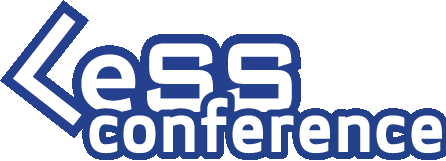Systems Thinking in Action
Systems Thinking is a useful way to have a conversation as it establishes a common language between people (e.g. management and developers). It creates a common understanding of the problem, the desired system optimization goal, and it reveals the (turning) knobs to optimize the system.
ONLY FOR LESS CONFERENCE PARTICIPANTS -10% with code LeSS2025
In this workshop, we will explore the world of Systems Thinking and Systems modeling.
Time: 0900 - 1700
Location: LeSS Headquarters

By visualizing people’s mental models, we analyze how various parts of a system interrelate and how systems work over time and within the context of larger systems. This workshop will lay the foundation by explaining the principles of systems thinking, emphasizing the importance of viewing problems as parts of an overall system, rather than reacting to specific parts, outcomes, or events.
Systems Thinking is a powerful tool for problem-solving, reflection, and organization design decisions. Yet, it will take guidance in the beginning and some practice to excel in Systems Thinking. One of the repeating feedback from Wolfgang’s classes is that he found a meaningful way for participants to approach the topic.
Whether you are a newbie in Systems Thinking or have already done some Systems Thinking, whether you are a product developer, a manager, or working in HR, this workshop is for you.
Learning Objectives
- Understand and Apply the Principles of Systems Thinking in Social Systems
- Develop Skills in Systems Modeling and Identify Key Variables and Interactions
- Differentiate Between Global and Local Optimization as well as the difference between Correlation versus Causality
- Utilize Tools for Effective Collaboration in Systems Modeling.
You will find Systems Thinking as a Thinking tool in LeSS here,
Agenda :
Introduction to Systems Thinking
- Social Systems and Why Systems Thinking?
- When to use Systems Thinking?
- Global versus local optimization
- Correlation versus Causality
Applying Systems Models to real-life scenarios
- Finding variables
- Syntax of interactions
- How to find related variables
- Tools for physical meetings
- Tools for online meetings
- Useful hints
through
- Guided puzzles
- Exercises with provided puzzles
- Discovering variables in a new puzzle
- Modeling your own problems and puzzles
- Q&A
Details :
Wolfgang is a passionate, energetic, inspiring, and authentic coach with 20+ years of experience in large-scale Lean and Agile Global Product Development. He is a certified trainer for Creating Agile Organizations, a Certified LeSS Trainer and LeSS Coach, a Systems Thinker, and a Scrum Master. His learning started in 2005 when he was introduced to Scrum and Agile for the first time. He coached organizations in their LeSS adoption from 2007 onwards and in 2010 a SAFe adoption. Systems Thinking and Systematic Problem Solving workshops are just some of his favorites. 
He has 10+ years of experience in Program and Project Management, including the successful commercial launch of products. Further, he has many years of experience as a Development Manager for Program Management at the Business Unit and division level within Nokia, as well as at the company level at Nokia Siemens Networks.
His 3+ years Round-The-World journey on a motorcycle with his dogs has sharpened his problem-solving skills and he started to practice the art of mindfulness.
Besides his long experience in telecommunication with Nokia/Nokia Siemens Networks, his latest assignments were in organizations like insurance, digital automation, retail, automotive, pump systems, electromechanical as well as electro-mechatronical product development organizations. In October 2020 he founded kai kaku Oy in Finland and he continues to provide training and coaching to organizations worldwide.
_065_%20round%20copy.jpg?preferred_lang=pt)




